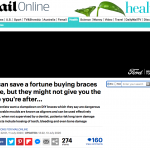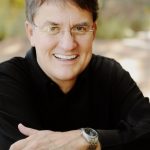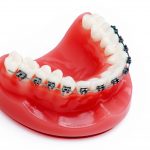As orthodontic practices re-open, more than three quarters (80%) of orthodontists report an increase in adult patients amid concerns over ‘DIY’ treatment in a new survey released by The British Orthodontic Society (BOS).
Over half (60%), say this is due to heightened awareness of adult orthodontics, and more than 15% of orthodontists say their adult patients are influenced by celebrities and bloggers. The majority of adult patients (85%) are in the 26-55 age bracket and most likely to be female (80%).
As the demand for adult orthodontics increases, so do the options for patients. The stats also show concern around the dangers of ‘direct to the consumer’ teeth straightening – also known as ‘DIY braces’. Nearly two thirds of orthodontists surveyed (65%), are concerned that more patients will be seeking ‘DIY braces’ both during and after lockdown.
With many practices dealing with a lockdown backlog of patients and members of the public more aware of issues surrounding close contact, there is concern that more people may put themselves in danger with ‘DIY’ options.
Patients are advised in all circumstances to visit a trained clinician ensuring that they have the various options open to them explained, in person, so they can make an informed decision. The Safe Brace Campaign – www.safebrace.org – is a trusted space where patients can get advice about the safest and most effective way to have orthodontic treatment.
When asked what kind of braces they provide to their patients, orthodontists revealed a cross section of approaches:
• Over 80% supply fixed braces with clear aesthetic brackets
• Over 30% supply lingual braces (fixed behind the teeth)
• 80% supply clear aligners
The most popular system, provided by more than 97% of orthodontists, is fixed braces on the front of the teeth, often referred to as train tracks. This figure reflects the high number of young people treated as NHS patients for whom fixed braces is the most appropriate option.
Peter McCallum, BOS Director of External Relations, commented: “It is good to see the number of adults interested in orthodontics remains high, we know that treatment can give people the straight and confident smile they have always dreamed about. We want to ensure patients are given the very best advice about orthodontic treatment. Our members, specialists and dentists with a special interest, offer a range of options for adults, enabling them to provide a solution to any kind of orthodontic problem.”
All figures, unless otherwise stated, are from BOS. The survey was carried out online in April 2020.












